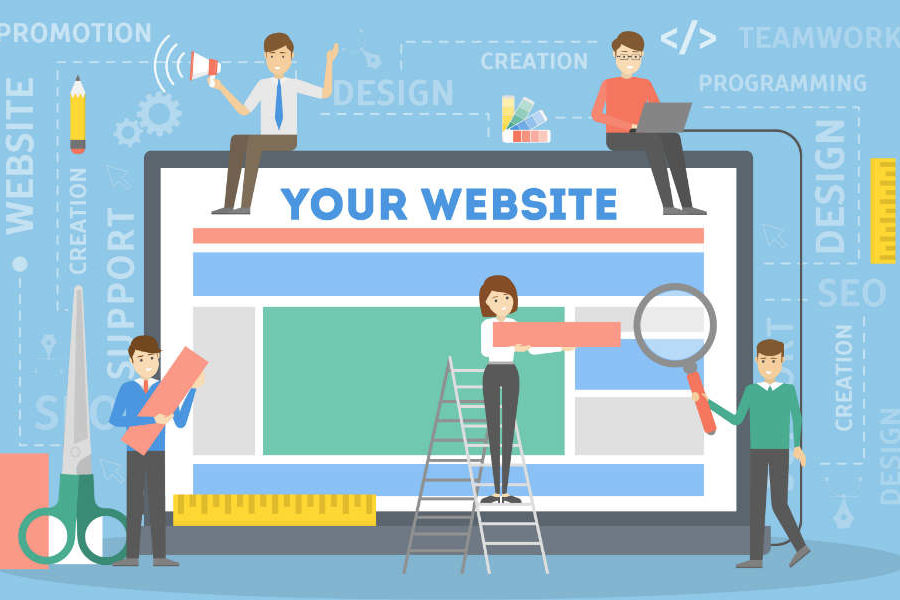Last Updated on November 18, 2020 by Sunny Staff
When it comes to driving traffic to your website, you have two choices, SEO and PPC.
Your first question is obviously, what’s the difference between SEO vs PPC? Then, which one is right for me? Keep reading to discover the answers!
What Is SEO?
SEO stands for Search Engine Optimization. SEO’s ultimate goal is to boost both the quantity and quality of your website traffic from search queries on Google.
Traffic quantity is simply the number of visits to your site. Traffic quality measures the match between what your visitors are looking for and what your site provides. For example, if your site specializes in selling running shoes, you want traffic for those searching for things like “best running shoes” or “track and field shoes.” You don’t want traffic for “casual work shoes” or “dress shoes.”
To increase the quantity and quality of your traffic, you must create high-quality, useful content optimized for search engines. “Optimized” simply means that things like the content title, headings, and body of your content are organized in a way that is easy for both users and Google to understand.
Good SEO takes time to build (more on this later). If you need quicker results, though, you may prefer PPC.
What Is PPC?
What is PPC? It stands for “pay per click” and is sometimes referred to as “paid search” (as opposed to SEO, which is sometimes called “organic search”).
Broadly speaking, PPC refers to any method where a user can pay to improve their site visibility. PPC techniques include better positioning on a page (like Google search results), targeted advertisements, visual advertisements, and more.
The biggest difference between SEO and PPC is that you pay for PPC. Fortunately, you only pay based on the number of people who click on the ad, no matter how many people actually see the ad.
With that in mind, let’s dive into the different advantages and disadvantages of both SEO and PPC.
Advantages of SEO
The primary advantage of SEO is that it is basically free. While it will take time to perfect your organic SEO, you will not have to worry about rising costs.
And “time” is the keyword here. While it takes time for organic SEO to work its magic, successful SEO will last a long time. You will eventually reach a point where it continues to boost your web traffic without you having to make many adjustments. This contrasts with PPC, where the benefits only last as long as you are shelling out money.
While improving organic SEO is easier said than done, it is worth it for almost every business. SEO is the key to your long-term visibility and success as a business.
Advantages of PPC
There are plenty of great benefits to organic SEO. However, PPC has its own set of benefits.
The primary benefit is that PPC gets results very quickly. Instead of waiting many long months for your organic SEO campaign to pay off, PPC allows you to start enjoying these benefits right away.
PPC is also great because it allows you to target very specific audiences. You can target based on factors like location, demographics, and search queries, which is perfect when you wish to target a particular customer segment with your advertising. For example, you can run ads targeting those searching for “running shoes for flat feet” that are over 30 and live in California.
Finally, given you are buying traffic, you can quickly conduct experiments to discover what works (and what doesn’t work) with your campaigns. Basically, you can monitor and analyze A/B testing much more quickly with PPC than SEO, allowing you to make adjustments and pivot into different directions as needed.
Disadvantages of SEO
Earlier, we offered very high praise for organic SEO. However, this approach is not without its downside.
The biggest drawback of organic SEO is that it takes time and a lot of effort. Many businesses will spend years perfecting their SEO until they hit the “top 10” of search results. And even if your business is far luckier, it will probably be at least a year before you notice real results.
The other primary drawback of organic SEO is that it relies largely on content marketing. You must craft content that is simultaneously unique, authoritative, engaging, and memorable. This approach takes time, and the need to constantly generate new content may overwhelm many businesses that embrace this approach.
Disadvantages of PPC
PPC offers results far faster than organic SEO. But this approach also has a few drawbacks you should know.
First of all, PPC can get very expensive, especially if you are unfamiliar with the process. You must bid on certain keywords, and in competitive industries, it’s not uncommon to bid $40-$50 for search terms. These costs add up, and they may even eclipse the price of the products and services you are selling.
Second, PPC can lose effectiveness over time. If consumers see the same ads over and over again, they will eventually tune those ads out. You can combat this by constantly creating new ads, but this eats into your time, all for an approach meant to save you time.
Finally, effective PPC requires a lot of financial management. There will be an initial “give and take” as you lose money on early PPC efforts before figuring out what is most effective. This is natural but can be annoying for smaller businesses with correspondingly smaller budgets.
SEO vs PPC: Which Is Better?
That brings us to the big question: who wins when it comes to SEO vs PPC?
Honestly, most businesses should embrace both approaches. While organic SEO does take time, it also has no real cost besides time. There is no time like the present to initiate SEO campaigns and begin the slow march towards the top 10 results.
For many businesses, PPC is too expensive to use all of the time. But its quick results make it a perfect way to advertise new products, services, and websites (such as your new WordPress site). And you can use it quickly to run A/B testing that is vital to improving your existing organic SEO.
What Next?
These are the most important details about SEO vs PPC. But do you know who can make your website worth visiting?
We specialize in WordPress hosting, maintenance, development, management, and more. To see what we can do for you and your site, contact us today!



